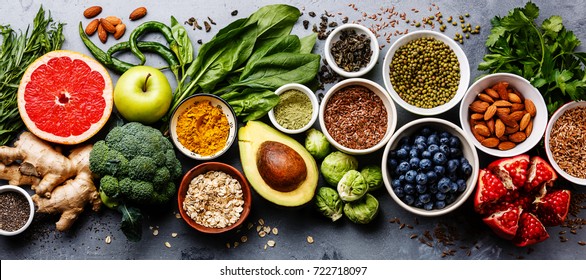The food we eat
today is far removed from what our grandparents or great-grandparents ate.
In
those days, all food was “organically grown.” There were no artificial
fertilizers, pesticides, herbicides, hormones, antibiotics, or “genetically
modified” food crops. Most food was grown locally and was consumed within a few
days of being picked or caught. It was not sprayed with preservatives, mold
inhibitors, or waxes. The soil was rich with nutrients and essential minerals,
yielding crops which were high in the same.
Healthy soil is a living environment containing
nitrogen-fixing bacteria, minerals, and is alive with rich organic matter. A
process known as “rotational farming” or crop rotation maintained the
nutritional quality of the soil. This was accomplished by a particular crop
being planted in a field one year, being plowed back into the earth, and then
another crop planted the following year. Alfalfa, for example, would be planted
because its root systems would absorb minerals deep from within the soil. It
would then be plowed back into the soil and a new crop such as corn would be
planted to reap the benefits from the newly revitalized soil. Some years the
land was not planted at all and any organic waste was returned to the soil to
decompose and allow its nutrients to be returned to it. Organic fertilizers
such as manure, compost, and lime (for essential magnesium and alkalinity) were
used. Organic soil requires bacteria that actually “fix” nitrogen, increasing the protein
content of the food, and when bound to minerals these proteins form “chelated”
organically bound minerals which are more easily absorbed.
Presently, cattle, foul, (chickens, turkey, duck,
Cornish hen, etc.) and even fish are being fed an unnatural diet of corn,
antibiotics, growth hormones, pesticides, and preservatives as well as
artificial coloring agents. “Farm raised” salmon are being fed a mix of corn,
antibiotics, and other synthetic chemicals and coloring agents.
These salmon do
not possess nearly as much of the essential omega III fatty acids as wild
caught salmon. A coloring agent is also added, which turns the grey colored
salmon to a “healthy looking” orange color.
Nevertheless, these salmon do not contain the naturally-occurring
bright orange antioxidant plant pigments which provide many of the “wild
caught” salmons’ health benefits.
A steer has a normal diet of grass, containing a
healthy mix of essential fatty acids, amino acids, minerals, cellulose, fiber,
chlorophyll, enzymes, and other plant nutrients necessary for their proper
health and development. They incorporate these essential nutrients and when we
consume them we gain the benefits as well.When we consume artificially fed
animals that have been raised consuming a mineral, essential fatty acid, and
phytonutrient deficient diet of commercially produced grains, we become
deficient as well.
A prime example is the omega III to omega VI essential
fatty acid ratio. Many authors have stated that this ratio should be 1:1 (one
part omega III to one part omega VI) and no more than 1:3 (one part of omega
III to three parts omega VI). Our modern diet has been estimated to be 1:20! In
other words, we are not receiving nearly enough omega III essential fatty acids
and we are consuming far too much omega VI containing oils. This essential
fatty acid imbalance contributes to systemic inflammation, which increases the
likelihood of stroke, heart attacks, arthritis, other inflammatory diseases and many other diseases including cancer.
Currently, mass produced food is being grown by a
number of giant food corporations who routinely use artificial fertilizers
containing only three ingredients: potassium, phosphorus, and nitrogen. The problem
with these artificial fertilizers is that they do not contain any of the other
innumerable substances that are contained in natural fertilizers such as
minerals, nitrogen-fixing bacteria (essential for protein production), and
numerous other vital components.










